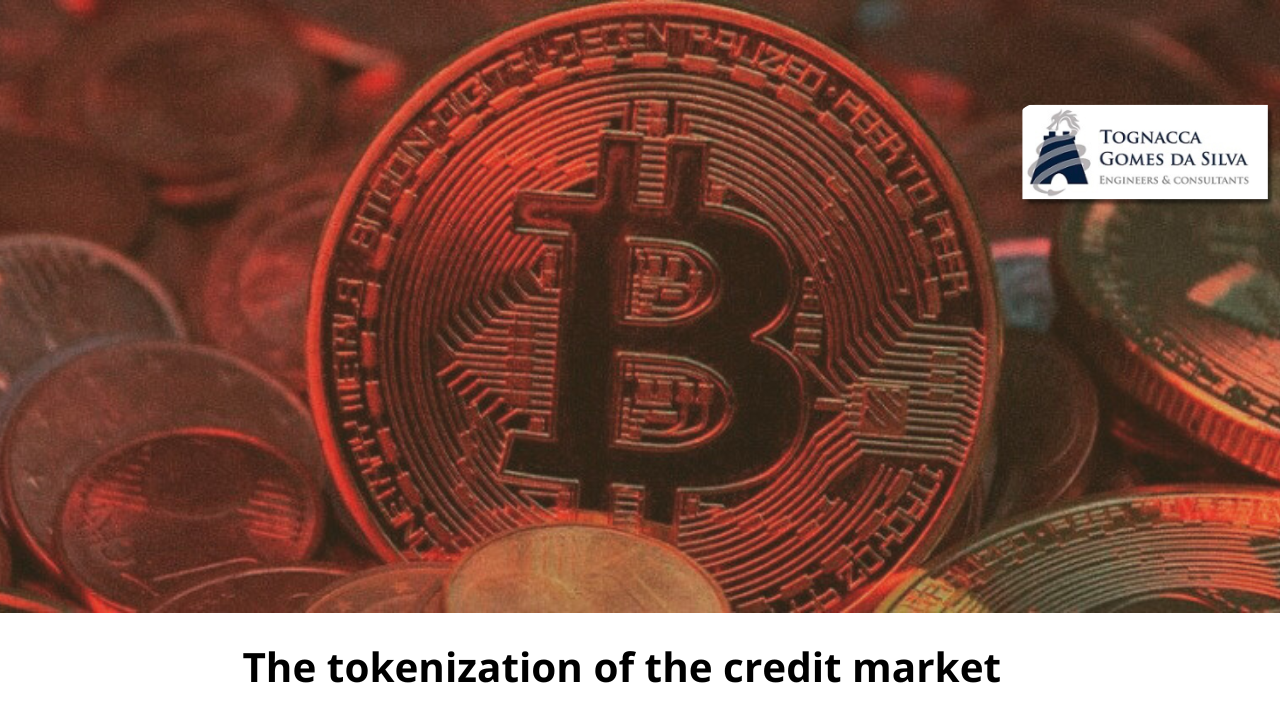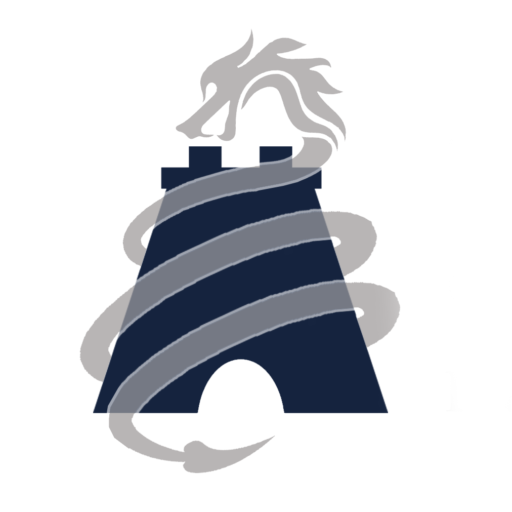Blockchain technology and tokenization are transforming the credit market by bringing greater transparency, security and efficiency. One of the main advantages of blockchain is the immutability of recorded transactions, which provides an additional layer of security against fraud and manipulation. This is particularly important in the credit market, where trust is key. Using blockchain, all parties involved in a transaction have access to a single, reliable record that can be verified transparently. Furthermore, process automation through smart contracts reduces the need for intermediaries, reducing costs and execution time of operations.
Tokenization, in turn, allows the digital representation of financial assets, including credits, in tokens that can be easily traded on digital platforms. This democratizes access to the credit market, enabling investors of different profiles to participate and diversify their portfolios in a more accessible way. Furthermore, liquidity is significantly increased, as tokens can be split and sold in small batches, facilitating the entry and exit of investors. The combination of blockchain and tokenization, therefore, not only increases efficiency and security, but also promotes greater financial inclusion in the credit market.
In this sense, the Securities and Exchange Commission (CVM) has always been attentive to technological advances and legislative and regulatory changes relating to the global financial market. It was during this march that CVM Instruction No. 588/2017 (ICVM 588) was published, importing from the United States of America (USA), more specifically from the Jumpstart Our Business Startups Act (Jobs Act), the concept of equity crowdfunding – a type of collective financing , widely used in raising funds for companies in their initial stages (startups).
ICVM 588 was a pioneer in enabling the public offering of securities issued by startups in Brazil in a simplified manner and without the heavy regulatory burden normally applicable to this type of operation. This contributed to the growth of entrepreneurial ideas, while establishing a new (and cheaper) way of financing startups through the capital market.
ICVM 588 brought significant metrics to the market, giving the CVM security about the use of crowdfunding. As a consequence of its success, the CVM issued CVM Resolution No. 88/2022 (CVM 88), expanding the scope of ICVM 588 and removing some constraints that were no longer justified in an increasingly solid market.
The changes brought by CVM 88 can be divided into some main blocks, starting with the expansion of the monetary limits for fundraising (from R$5 million to R$15 million) and the share capital of companies eligible to raise funds via crowdfunding (from R$ $10 million to R$40 million).
Another important change was greater flexibility in publicizing offers, allowing the use of media channels and securities analysts, which enhanced fundraising, while reaching more investors.
A third block of changes involves the activity of bookkeeping and control of ownership of issued securities (article 12 of CVM 88). Initially, the CVM brought the need to hire a bookkeeper authorized to operate, in accordance with the guidelines of CVM Resolution No. 33/2021. However, meeting market demands, the CVM allowed the platforms themselves to carry out this activity, if they met some technical requirements (set out in article 12 of CVM 88).
This release, in addition to making crowdfunding operations cheaper and simpler, was used as a true regulatory sandbox for the CVM. This is because many players started to offer securities issued by startups, via tokens, with ownership control carried out by blockchain technology, which met the minimum technical requirements imposed.
The fourth block concerns the authorization of so-called subsequent transactions. The CVM made it clear, however, that there is no secondary market, and this change came to facilitate the investor’s exit, through intermediation carried out by the platform.
The changes brought about by CVM 88, especially regarding ownership control via blockchain, solidified the crowdfunding market in Brazil, allowing it to expand beyond equity financing, reaching debt raising.
This expansion was largely due to the real estate market, which saw crowdfunding as a viable and much cheaper alternative to financing its projects. Through this technology, the sector could raise funds by selling tokens of future receivables backed by the property itself that is the subject of financing.
Debt tokenization and the issuance of securities through CVM 88 have been successfully carried out by several companies, demonstrating the potential of this approach. This is because Blockchain technology, by allowing the tokenization of assets, facilitates the traceability and security of transactions, making the process more efficient and reliable.
Attentive to new market movements, the CVM published Circular Letter No. 4/2023 (OC 4/23), bringing some interpretations from its technical area (SSE) on the possibility of offering receivables tokens or fixed income tokens for through a crowdfunding platform.
The CVM also published Circular Letter No. 6/2023 (OC 6/23), equating separate assets to the rules of small business companies. In other words, separate assets began to be considered to measure the social capital limits of CVM 88, which allows, for example, construction companies and securitization companies (both with millionaire share capital and without the possibility of being classified as a small company) to be able to issue tokens for your projects, via separate equity, distributing them through a crowdfunding platform.
This new reality brought with it an inevitable need to change CVM 88, to refine the scope of the standard on two major fronts: financing startups (venture capital) and financing projects linked to more solid markets.
This is because, when we bring in the possibility of issuing other types of debt (not linked to venture capital), by more consolidated companies (via separate equity, as per OC 6/23), the risk of the operation decreases, which makes the limitations and Existing constraints in CVM 88 (designed for venture capital) not only lose meaning (as they have no reason to exist), but also start to hinder the development of the market, which loses liquidity and visibility.
The current restrictions on raising funds of up to R$15 million, for example, are inappropriate for large real estate projects, which prove to be much safer investments.
Given this scenario, it is recommended to create a new specific standard for the offering of various debts, while CVM 88 could continue to exclusively regulate the offering of equity participation in startups. This new standard could introduce measures such as the separation of rules according to the type of issuer (small companies versus SPEs linked to consolidated companies) and the relaxation of funding limits.
Furthermore, it would be beneficial to increase the individual investment ceiling based on suitability rules and allow the trading of the same asset on more than one platform to increase market liquidity. The introduction of a freer, but still regulated, secondary market could facilitate the exit of investors and stimulate the development of the crowdfunding market in Brazil.
These changes would be fundamental to align Brazilian regulation with market needs, ensuring a robust regulatory environment that fosters the sustainable growth of crowdfunding, both for raising equity participation and issuing debt.
The importance of the credit market in Brazil cannot be underestimated. Access to credit is important for economic development, especially for small and medium-sized companies that represent a significant portion of the country’s GDP (gross domestic product) and employment. By adapting regulation to better reflect credit market realities and technological innovations, Brazil can continue to lead in creating opportunities for startups and investors, strengthening its position on the global innovation and entrepreneurship stage.
– Blockchain and security in the credit market
Blockchain technology guarantees the immutability of transactions and increases transparency, reducing fraud and optimizing the credit capture process through smart contracts.
– Expansion of crowdfunding with CVM 88
CVM Resolution 88 increased the fundraising limit for startups and made the use of blockchain more flexible to control ownership of values, allowing the financing of more solid projects, such as in the real estate sector.
– Potential of new regulation for crowdfunding
With the growth of the market, a new standard is suggested that makes funding even more flexible for different issuers, creating greater liquidity and attracting more investors to the credit market in Brazil.
( fonte: MIT Technology Review)



